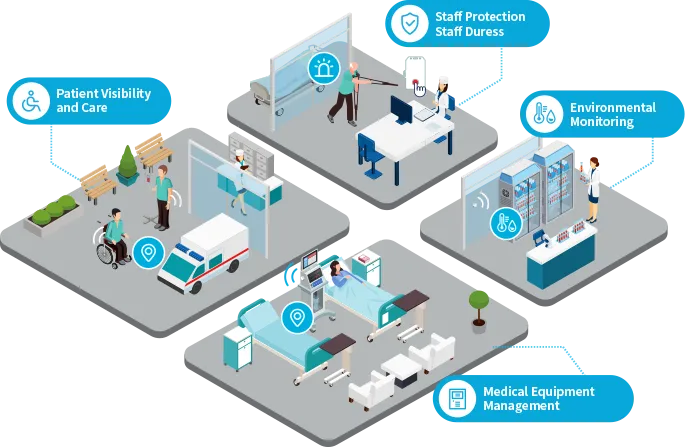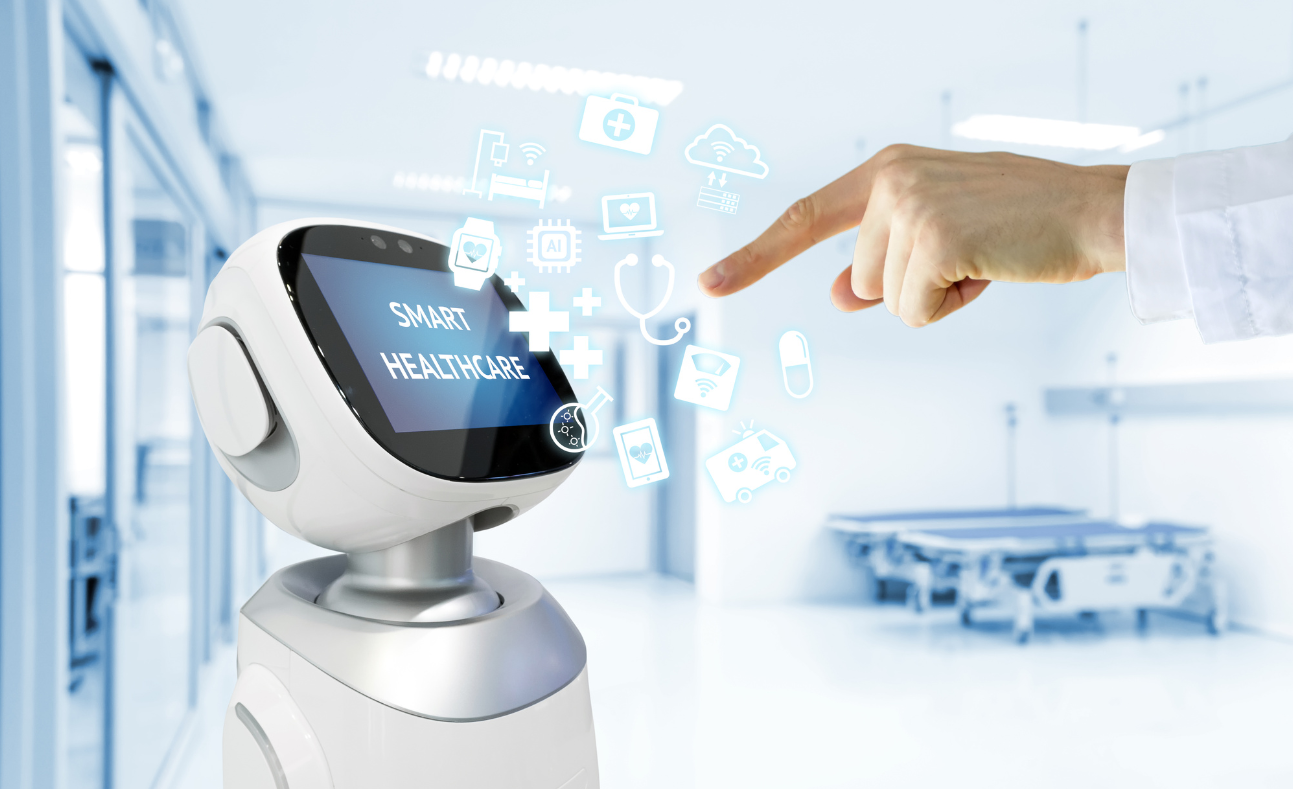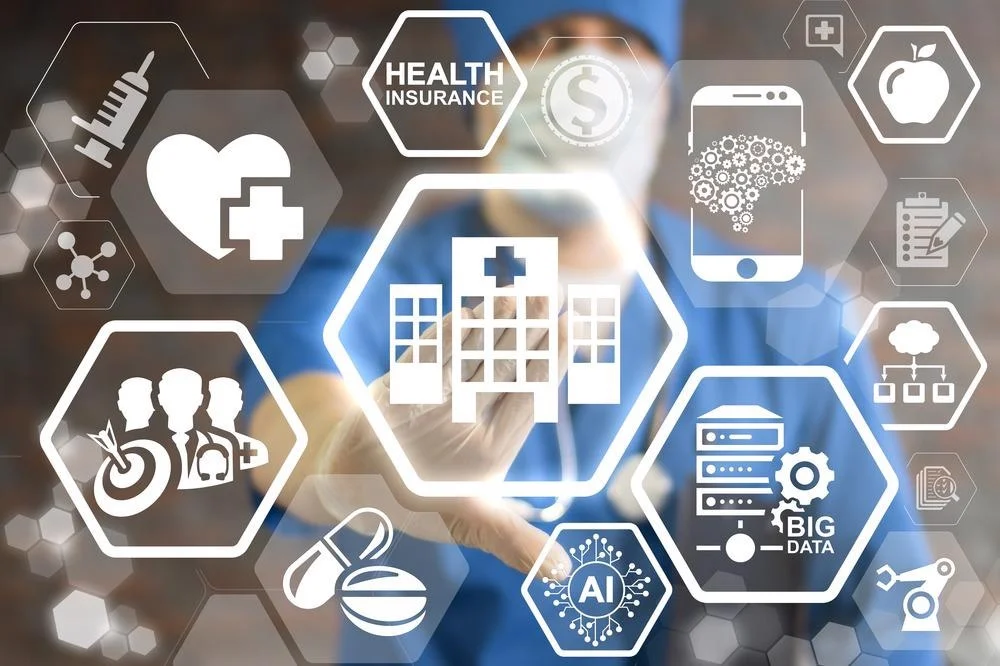
Smart healthcare drives a healthy future
Product for smart healthcare
The Smart Healthcare Field has rapidly transformed the way we approach medical services and patient care. In recent years, this domain has evolved from basic telemedicine practices to an integrated network of advanced technologies that support diagnostics, treatment, and patient monitoring. With the ever-increasing reliance on digital data and innovative medical devices, smart healthcare is now a pivotal arena that combines artificial intelligence, big data, wearable technology, and cloud computing to revolutionize healthcare delivery. This ecosystem is not merely a collection of isolated technologies but a comprehensive system that aims to deliver efficient, personalized, and predictive healthcare.
Historical Evolution of the Smart Healthcare Field
The history of smart healthcare can be traced back to early innovations in medical informatics and the introduction of digital technologies into clinical settings. Initially, the focus was on basic computerization of patient records and administrative functions. However, over time, this area evolved into a sophisticated network where data-driven decision-making and remote patient monitoring became commonplace.

In the early stages, innovations such as electronic health records (EHR) paved the way for digital transformation. As the field matured, the integration of telemedicine, wearable devices, and mobile health applications further enhanced the ability to deliver healthcare remotely. A significant leap occurred with the advent of high-speed internet and cloud computing, which allowed for real-time data exchange and improved collaboration among medical professionals. Today, this technological ecosystem encompasses a wide range of tools that work together to offer a seamless and efficient healthcare experience.
Below is a timeline table summarizing key milestones in the evolution of the Smart Healthcare Field:
| Year | Milestone | Impact on the Smart Healthcare Field |
|---|---|---|
| 1990 | Introduction of Electronic Health Records (EHR) | Laid the foundation for digital data management in the Smart Healthcare Field |
| 2000 | Emergence of Telemedicine | Enabled remote consultations and increased accessibility in the Smart Healthcare Field |
| 2010 | Integration of Wearable Devices and Mobile Apps | Enhanced real-time monitoring and patient engagement within the Smart Healthcare Field |
| 2020 | Adoption of Artificial Intelligence and Big Data | Transformed diagnostics and predictive analytics in the Smart Healthcare Field |
The historical development of the Smart Healthcare Field highlights the dynamic interplay between technology and patient care. As new technologies emerge, this domain continues to adapt, ensuring that both healthcare providers and patients benefit from improved access, accuracy, and efficiency in medical services. The evolution of smart healthcare is a testament to the power of innovation in driving systemic change and promoting a healthier society.
Technological Innovations in the Smart Healthcare Field
The technological breakthroughs in smart healthcare have significantly altered the landscape of healthcare delivery. One of the most important contributions has been the integration of artificial intelligence (AI) into diagnostic and treatment processes. AI algorithms enable rapid analysis of complex datasets, which can lead to early detection of diseases and personalized treatment plans. Moreover, this field leverages big data analytics to predict outbreaks and manage healthcare resources more effectively.
Wearable technology has emerged as another cornerstone of this ecosystem. Devices such as smartwatches and fitness trackers continuously monitor vital signs and physical activity, feeding real-time data into centralized systems. This continuous stream of information allows for proactive interventions and personalized health recommendations. In addition, smart healthcare is increasingly relying on cloud computing to store and process vast amounts of data securely. Cloud platforms enable seamless data sharing among healthcare providers, thus improving collaboration and patient outcomes.

The advent of mobile health applications has further expanded the reach of this technological network. These apps offer a variety of functions ranging from appointment scheduling and medication reminders to interactive health coaching and remote consultations. By integrating these applications, patients are empowered to manage their health more effectively and communicate more readily with their healthcare providers. In essence, this interconnected system ensures that data flows freely and securely, ultimately enhancing the efficiency of healthcare delivery.
Below is a table summarizing key technological innovations within the Smart Healthcare Field:
| Technology | Description | Contribution to the Smart Healthcare Field |
|---|---|---|
| Artificial Intelligence | Algorithms that analyze medical data and support diagnostics | Improves accuracy and speed of disease detection in the Smart Healthcare Field |
| Wearable Devices | Smartwatches, fitness trackers, and biosensors | Provides real-time health monitoring and data collection in the Smart Healthcare Field |
| Cloud Computing | Remote data storage and processing solutions | Enables secure data sharing and scalable analytics in the Smart Healthcare Field |
| Mobile Health Applications | Apps for patient engagement and remote consultations | Enhances accessibility and personalized care in the Smart Healthcare Field |
The integration of these technologies demonstrates the transformative potential of the Smart Healthcare Field. By harnessing the power of AI, wearables, cloud computing, and mobile applications, this domain is able to provide more timely, accurate, and personalized healthcare services. The continuous innovation within smart healthcare is driving a paradigm shift in the way healthcare is delivered and experienced.
Applications and Real-World Impact of the Smart Healthcare Field
Smart healthcare has a broad spectrum of applications that touch nearly every aspect of patient care and medical practice. In hospitals, these technologies are used to streamline patient admission, manage electronic health records, and optimize treatment workflows. This ecosystem also plays a crucial role in critical care settings, where continuous monitoring and rapid diagnostics are essential. Furthermore, it supports remote patient monitoring, making it possible for patients to receive quality care from the comfort of their homes.
One of the most significant applications of this field is in chronic disease management. Patients with conditions such as diabetes, hypertension, and heart disease benefit greatly from smart healthcare, as it allows for continuous monitoring and timely intervention. Wearable devices provide real-time data that can alert healthcare providers to potential complications before they become critical. This proactive approach is a defining characteristic of the system and has led to better health outcomes and reduced hospital readmission rates.
In addition to chronic disease management, these advancements are revolutionizing surgical procedures and post-operative care. Robotic surgery systems, which are an integral part of this ecosystem, allow for minimally invasive procedures and improved precision. Moreover, post-operative monitoring systems ensure that patients recover safely by providing continuous updates on vital signs and other critical metrics.
The impact of smart healthcare is also evident in public health initiatives. During health crises and pandemics, these technologies have enabled rapid data collection and real-time surveillance, thereby facilitating quick responses and effective resource allocation. The ability to aggregate and analyze large volumes of data makes this field an invaluable tool for epidemiologists and public health officials.
Below is a table highlighting some of the key applications of the Smart Healthcare Field:
| Application Area | Description | Impact of the Smart Healthcare Field |
|---|---|---|
| Chronic Disease Management | Continuous monitoring and timely interventions for chronic conditions | Enhances patient outcomes and reduces hospital readmission rates in the Smart Healthcare Field |
| Surgical Procedures | Use of robotic systems and minimally invasive techniques | Increases surgical precision and safety through advancements in the Smart Healthcare Field |
| Remote Patient Monitoring | Telemedicine and wearable device integration for at-home care | Improves accessibility and convenience for patients by leveraging the Smart Healthcare Field |
| Public Health Surveillance | Real-time data collection and analysis during health crises | Facilitates rapid response and resource allocation in the Smart Healthcare Field |
The diverse applications of the Smart Healthcare Field illustrate its far-reaching impact on modern medicine. By integrating various technological innovations, this domain is able to address the needs of patients and healthcare providers alike, thereby transforming the traditional model of care into a more proactive, personalized, and efficient system.
Market Trends and Economic Impact in the Smart Healthcare Field
Smart healthcare is experiencing unprecedented growth driven by increased investments in digital health technologies and a growing demand for improved healthcare services. Governments, private investors, and healthcare organizations worldwide are recognizing the potential of these advancements to reduce costs and enhance patient outcomes. The rapid adoption of telemedicine, wearable devices, and cloud-based solutions has created a thriving market environment for this field.
One significant trend in this ecosystem is the shift towards personalized medicine. As smart healthcare evolves, data-driven insights are being used to tailor treatment plans to individual patients, thereby increasing the efficacy of interventions. This shift is not only improving patient outcomes but also optimizing resource allocation within the system. Moreover, advancements in genomics and precision diagnostics are providing deeper insights into disease mechanisms, further reinforcing the role of this field in driving innovation.
Investment in smart healthcare continues to soar, with venture capitalists and public markets placing significant bets on digital health startups and established healthcare companies alike. The economic impact is evident in the rapid expansion of telehealth platforms, smart medical devices, and integrated healthcare systems. As this domain matures, the synergy between technology providers, healthcare institutions, and regulatory bodies is expected to drive even more rapid innovation and market penetration.
Below is a table summarizing key market trends and economic impacts in the Smart Healthcare Field:
| Trend/Impact Area | Description | Implications for the Smart Healthcare Field |
|---|---|---|
| Personalized Medicine | Customization of treatment plans based on patient data | Leads to more effective and targeted interventions in the Smart Healthcare Field |
| Investment Growth | Increased funding from venture capital and public markets | Fuels rapid innovation and expansion of the Smart Healthcare Field |
| Integration of Technologies | Convergence of AI, wearable devices, and cloud computing in healthcare | Enhances the overall functionality and reach of the Smart Healthcare Field |
| Regulatory Developments | Evolving policies and standards to support digital health initiatives | Ensures that the Smart Healthcare Field operates in a secure, standardized, and patient-centric environment |
The market trends discussed above underscore the dynamic nature of the Smart Healthcare Field. As technology continues to advance and consumer expectations evolve, this domain is poised to deliver even more transformative solutions that will redefine the future of healthcare. The economic benefits of smart healthcare are expected to extend beyond improved patient outcomes, contributing to reduced healthcare costs and enhanced operational efficiencies across the board.
Challenges and Solutions in the Smart Healthcare Field
Despite the many advantages and innovations associated with smart healthcare, several challenges remain that must be addressed to ensure sustainable growth and widespread adoption. One of the primary challenges is data security and privacy. As sensitive patient information is collected and transmitted through digital platforms, ensuring the integrity and confidentiality of this data becomes paramount. This field must navigate complex regulatory frameworks and implement robust cybersecurity measures to protect patient data and maintain trust.
Interoperability is another significant challenge in this ecosystem. The Smart Healthcare Field encompasses a vast array of devices, systems, and software applications, and ensuring that these components work seamlessly together is a critical hurdle. Standardization and open data exchange protocols are essential to achieve true integration across different platforms and technologies.
Additionally, smart healthcare faces challenges related to technological disparities and accessibility. While urban centers and developed regions may rapidly adopt these advancements, rural and underserved areas often lag behind due to limited infrastructure and resources. Bridging this digital divide is essential to ensure that the benefits are available to all segments of the population. Solutions must therefore prioritize scalability, affordability, and user-friendly interfaces to promote inclusivity.
To address these challenges, stakeholders are working collaboratively to develop comprehensive strategies that encompass policy reforms, technological innovations, and public-private partnerships. This ecosystem is benefiting from initiatives that focus on enhancing cybersecurity protocols, promoting interoperability standards, and expanding broadband access to underserved regions. Through these efforts, smart healthcare is steadily overcoming obstacles and paving the way for a more secure, integrated, and accessible healthcare system.
Future Prospects and Innovations in the Smart Healthcare Field
Looking forward, the future of smart healthcare is filled with immense potential and exciting opportunities. Researchers, clinicians, and technology developers are continuously exploring new ways to integrate advanced technologies, further enhancing patient care and operational efficiency. One of the most promising areas is the integration of advanced machine learning algorithms and predictive analytics. These innovations promise to transform healthcare by providing early warning systems for disease outbreaks, personalized treatment protocols, and real-time monitoring of patient health trends.
This field is also set to benefit from the rapid evolution of wearable and implantable devices. Future iterations of these devices are expected to be more accurate, less invasive, and capable of monitoring a broader range of physiological parameters. This will not only improve the quality of data collected but also enhance the ability to diagnose and manage conditions before they become severe.
Another exciting development in smart healthcare is the incorporation of virtual and augmented reality. These technologies have the potential to revolutionize medical training, patient rehabilitation, and even surgical procedures. By integrating immersive simulations, healthcare professionals can gain hands-on experience in a risk-free environment, thereby improving their skills and enhancing patient safety.
The Smart Healthcare Field is also expected to see significant improvements in patient engagement through the use of gamification and personalized health coaching. As patients become more involved in their own care, this domain will continue to innovate by offering interactive platforms that motivate individuals to adopt healthier lifestyles and adhere to treatment plans. The future of this field is one where technology and human-centered design work hand in hand to create a more responsive and patient-centric healthcare system.
Furthermore, regulatory advancements and increased collaboration between public and private sectors will further accelerate growth. Initiatives aimed at standardizing data exchange and promoting cross-industry partnerships are set to enhance the overall ecosystem. As these collaborations mature, smart healthcare will benefit from shared knowledge, pooled resources, and coordinated strategies that address common challenges and drive innovation forward.





2 Comments
Your comment is awaiting moderation.
yYy eoLbZ XFQ
A fringe topic related to “smart healthcare” could be the ethical implications of AI-driven diagnostics in remote areas. As smart healthcare leverages artificial intelligence to enhance medical services, its deployment in underserved regions promises improved access to care. However, it raises concerns about data privacy, especially where infrastructure is weak, and patient information might be vulnerable. Additionally, over-reliance on AI could widen the gap in human expertise, leaving local healthcare workers sidelined. Balancing technological advancement with equitable training and robust security measures becomes critical to ensure smart healthcare truly benefits all, rather than creating new disparities in an already uneven landscape.
Smart healthcare leverages AI and IoT for real-time patient monitoring, but its edge lies in controversial applications like predictive diagnostics or robotic surgery. While enhancing care efficiency, it raises ethical debates over data privacy, algorithmic bias, and the depersonalization of medicine in underserved regions.